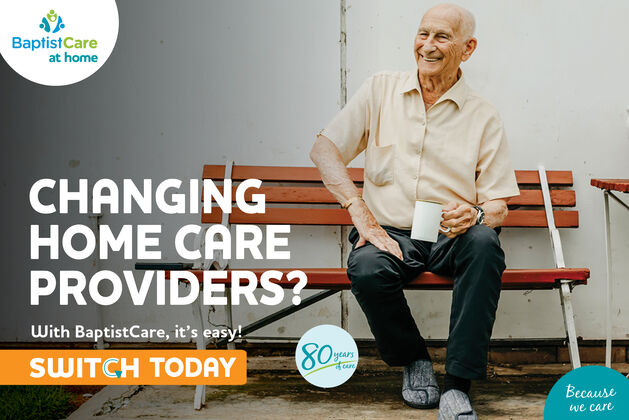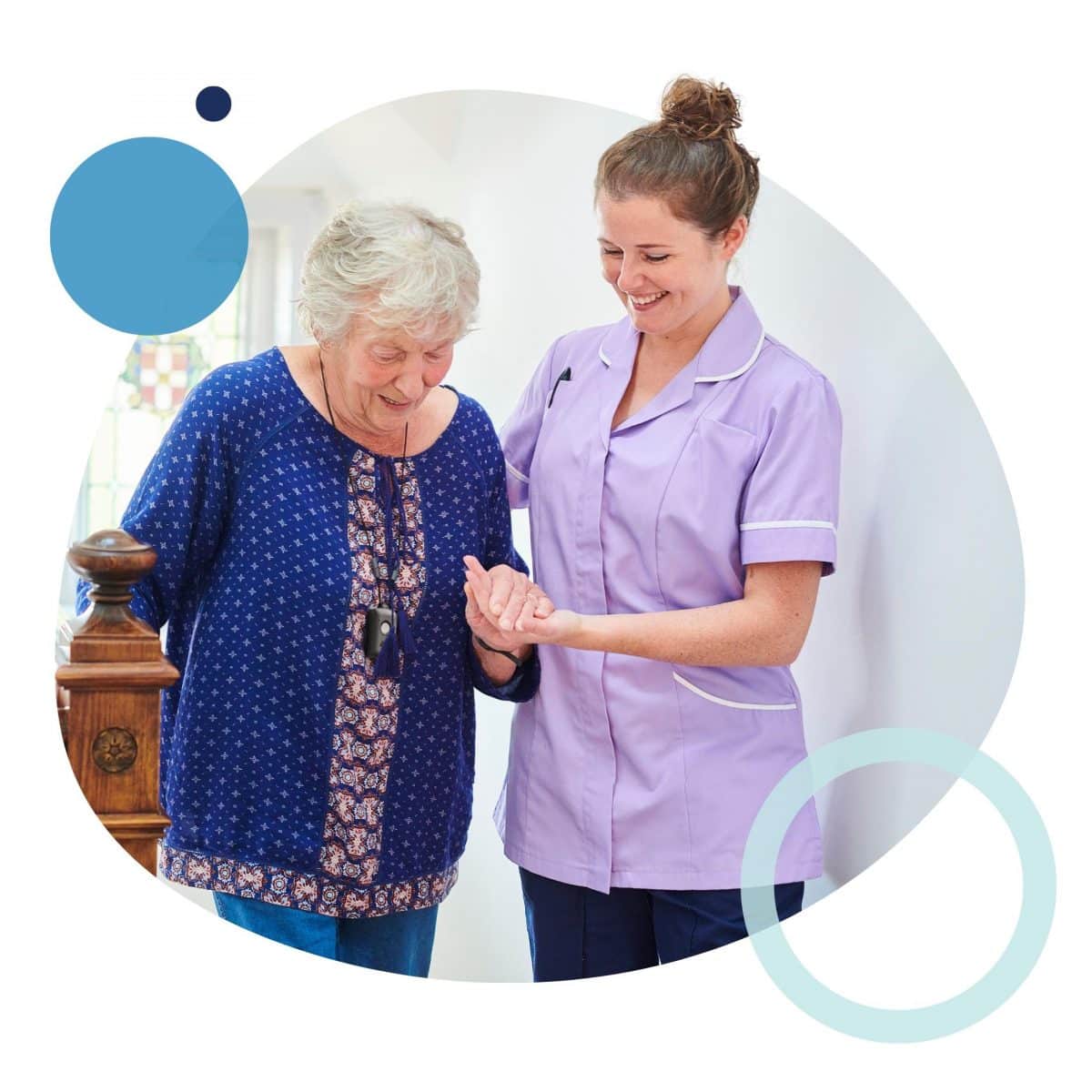Expert NDIS Support Coordinator Services: A Guide to Home Care Providers in Australia
Expert NDIS Support Coordinator Services: A Guide to Home Care Providers in Australia
Blog Article
The Expanding Need for In Home Care Givers: Factors Family Members Choose Professional Care Over Traditional Facilities
The increasing choice for in-home caregivers over traditional centers is a substantial trend reshaping the landscape of senior care. Households are attracted to the benefits of customized treatment that straightens with specific requirements and preferences, enabling senior citizens to keep a feeling of freedom in an acquainted setting.
Personalization of Care
Customization of care in home caregiving is essential for satisfying the unique requirements of each individual (ndis plan manager). This approach guarantees that care strategies are customized to the details requirements of the person, considering their clinical history, personal preferences, and lifestyle. By concentrating on the individual's unique situations, caretakers can cultivate a feeling of dignity and autonomy, which is typically doing not have in more institutionalized setups

Home caregiving permits for continuous monitoring and modification of treatment approaches, ensuring that adjustments in health and wellness standing or personal preferences are quickly dealt with. Inevitably, personalized treatment in home settings substantially adds to the total health of customers, making it an essential element of modern-day caregiving techniques.
Convenience of Home Environment
The comfort of a home atmosphere plays a vital duty in the effectiveness of home caregiving. Many individuals, especially elders, experience enhanced stress and anxiety when put in unknown settings such as typical care centers. Home caregiving uses a familiar ambience, full of individual valuables, treasured memories, and the feeling of security that comes from remaining in one's very own area. This familiarity can considerably boost emotional health, which is crucial for healing and general wellness.
Moreover, the home setting enables a tailored strategy to caregiving, accommodating specific choices and regimens. Family members can produce an atmosphere that shows their loved one's way of living, making certain that care is supplied in such a way that really feels comfy and natural. This tailored setting urges better interaction and interaction between caregivers and customers, cultivating trust and connection crucial for efficient treatment.
In addition, the convenience of home can facilitate social links, as relative and pals can visit much more easily, giving essential psychological support. ndis plan manager. On the whole, the home environment not just aids to keep dignity and autonomy however likewise adds to a better of treatment, making it a preferred choice for family members looking for specialist caregiving services

Improved Self-reliance for Elders
Home caregiving not just gives convenience yet likewise advertises improved independence for elders. Unlike typical facilities, in-home treatment allows seniors to keep their daily regimens and take part in familiar activities within their own environment. This freedom is critical for their emotional well-being and total high quality of life.

In addition, in-home caregivers can adjust their services to provide especially to the special needs of each elderly, promoting a better sense of control. This flexibility makes sure that senior citizens can enjoy their leisure activities, fraternize friends and family, and remain energetic in their communities, better enhancing their sense of self-reliance.
Eventually, in-home caregiving not just deals with the physical demands of seniors but likewise empowers them to lead meeting lives, making it an increasingly popular option for families looking for the most effective care remedies for their enjoyed ones.
Cost-Effectiveness of In-Home Care
In-home care supplies an economical alternative to standard nursing facilities, enabling families to give high quality assistance for their enjoyed ones without sustaining excessively high costs. The expenditures related to nursing homes can be overwhelming, often surpassing $100,000 every year, which can drain funds promptly. On the other hand, in-home treatment services usually bill on a per hour or per-visit basis, making it possible for families to tailor care strategies according to their budget and particular requirements.
Additionally, in-home more helpful hints care gets rid of additional costs connected with facility living, such as room, transportation and board, and various administrative fees. Families can pick to engage caregivers only when required, potentially lowering total expenses. A significant advantage of at Going Here home treatment is the ability to maintain personal regimens, which can add to much better psychological health and reduce the demand for expensive medical interventions resulting from abrupt lifestyle changes.
Insurance protection, consisting of lasting care insurance, frequently includes in-home treatment solutions, even more enhancing monetary availability (ndis plan manager). Generally, the cost-effectiveness of in-home treatment not only eases the economic concern on families but also advertises a more tailored technique to care that straightens with private preferences and demands
Building Stronger Family Members Connections
Providing treatment in a familiar atmosphere fosters deeper family members connections, enabling loved ones to actively join the caregiving process. At home care produces opportunities for family members to engage meaningfully with their handicapped or senior loved ones, advertising emotional bonds that can be tough to achieve in institutional setups. The visibility of professional caretakers makes it possible for relative to focus on their relational functions as opposed to being strained by the physical needs of care.
Additionally, in-home treatment enables family members to maintain their treasured regimens, which can lessen feelings of stress and anxiety and disorientation frequently related to relocation to care facilities. Shared dishes, acquainted surroundings, and the comfort of home provide a feeling of security that boosts well-being and fosters open communication.
Households can team up with caregivers to develop individualized treatment plans that show the private choices and demands of their liked straight from the source ones. This collaborative technique not just empowers the senior yet also strengthens the family system, as participants share duties and sustain each other via difficult times. Inevitably, at home treatment grows a caring environment where partnerships can prosper, improving the high quality of life for both caretakers and receivers.
Verdict
The enhancing preference for at home caregivers highlights a considerable change in just how families approach elderly treatment. As these aspects straighten, in-home care emerges as an engaging option to conventional facilities, ultimately promoting the health and high quality of life for seniors.
Families are attracted to the advantages of customized care that straightens with private needs and preferences, enabling senior citizens to maintain a sense of autonomy in a familiar environment.In-home care provides a cost-efficient choice to standard nursing centers, allowing family members to offer top quality support for their loved ones without sustaining exorbitant costs. In comparison, in-home treatment services generally bill on a per-visit or per hour basis, making it possible for families to customize care strategies according to their budget plan and particular demands.
In-home treatment produces chances for family members to engage meaningfully with their elderly or handicapped relatives, promoting emotional bonds that can be tough to achieve in institutional setups.The raising preference for at home caregivers highlights a significant shift in exactly how family members come close to senior treatment.
Report this page